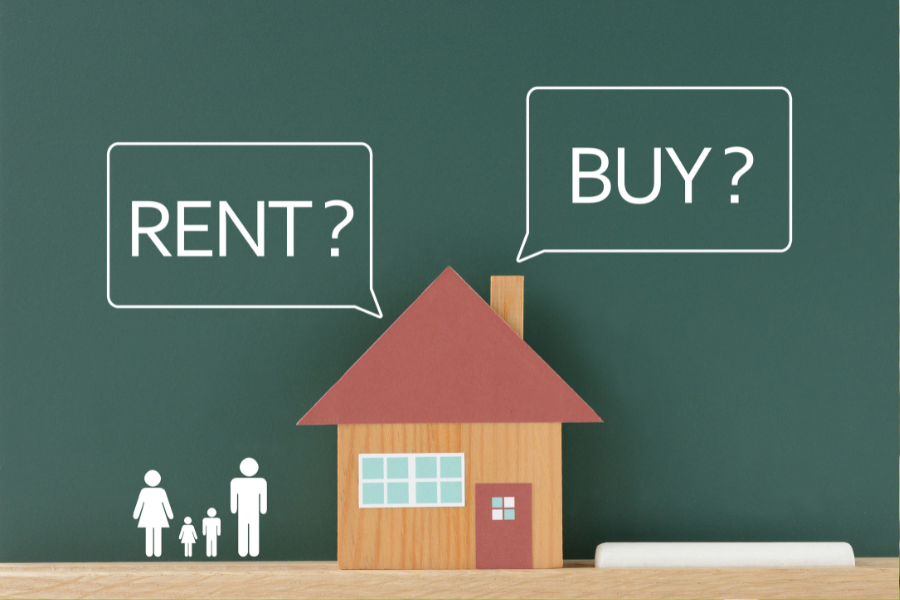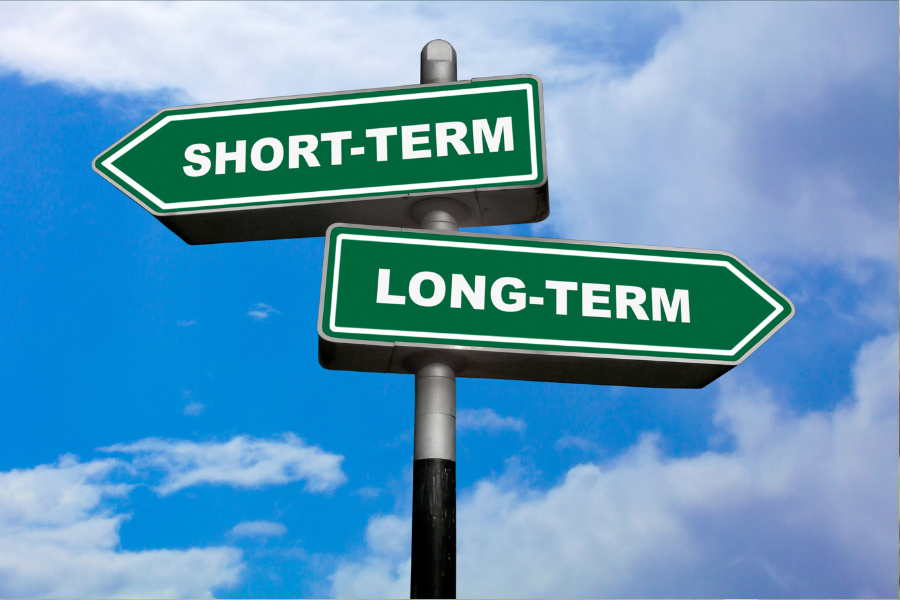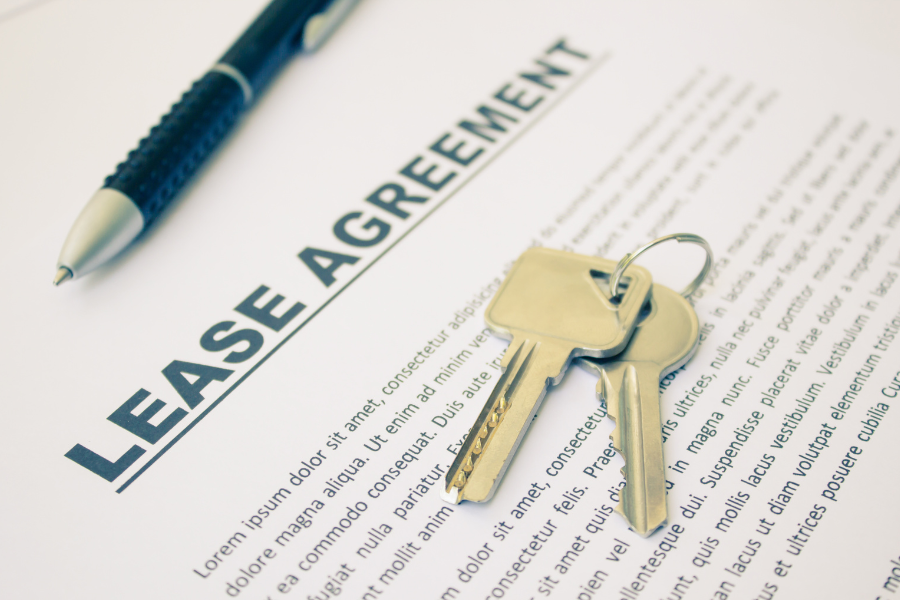11 Pros and Cons of Renting a Home

Pros And Cons of Renting a Home
If you're trying to weigh your options of renting vs. buying a home, here are the pros and cons of renting a home to help you evaluate your options.
Renting a home has its pros and cons. If you're considering moving into a rental and deciding if it's right for you, consider all your options. For various reasons, owning a home may require too much maintenance and responsibility for your lifestyle.
You could be looking to sell your house and be free of the responsibility of owning a home. Whatever your circumstances, it is always important to examine all aspects to help you make an informed decision, especially when considering rental market trends.
Here are 11 Pros and Cons of Renting A Home
Chapters
1. Pro: Flexibility
Rental terms include the monthly rent, rules and responsibilities of the tenants, and the length of the lease. Some leases may be longer than 12 to 24 months, while others could be less than 12 months. It is common to have leases for six months, three months, or even month-to-month.
Short-term rentals have become a wildly popular alternative for tenants. Perhaps you're looking for a vacation rental, or you will be staying near family for a short amount of time but want and need flexibility. Websites such as Airbnb or VRBO have become increasingly popular. These are what we commonly refer to as short-term rentals.

For many Americans, flexibility is an integral part of their lifestyle. Many Americans work remotely, like the idea of not being tied to one area of the country, and would like to come and go as they please.
Having the flexibility to stay in a rental for a specific period of time may be attractive to those who travel a lot or are looking for a more flexible lifestyle. Jobs that require more travel, such as pilots, flight attendants, international executives, military careers, travel writers, and photographers, are just a few examples of people who could benefit from the flexibility that renting would offer.
2. Pro: Repairs Are Not Your Responsibility
All homes, whether single-family residences, townhouses, or condos, will require costly repairs, maintenance, and upkeep. It's important to understand what could come up and have enough liquid cash for unexpected repairs when you own a home.
The benefit to renting is that most of the time, these repairs and maintenance usually will never fall to the expense of a tenant who is renting.
Some costly repairs could be a roof leak, leading to repairs or even a total replacement. According to Forbes, the average cost to replace a roof in 2024 is around $11,500 for an average-sized home. When your roof needs replacement, you, as the tenant, don't have to even think about getting quotes, pulling money out of savings, or exploring financing options.

One of the most significant advantages of renting is that the landlord is responsible for any repair or replacement, big or small. As long as you pay your rent on time every month and follow the rules specific to your lease agreement, the landlord will ensure that the home is maintained and that major repairs are taken care of.
3. Pro: Little To No Maintenance
Maintenance is a requirement when you own a piece of property. Even if you own a townhome or condo, there will be things that need attention pretty regularly. You may need to replace your siding or have your HVAC system cleaned and tuned up, or you may need to have your water heater flushed and cleaned.
So many small systems, appliances, and features make up a home and often need frequent TLC. Even newer homes will fail at some point. A common complaint with homeowners is that they constantly pour financial resources into their homes.
As a renter of one of the best apartments in Raleigh, you will find immense relief knowing it is not your responsibility to care for and maintain these things. On the other hand, you could have some responsibilities if they are written into your lease.
More common responsibilities may include lawn maintenance, changing air filters, and maintaining clean carpets. This could mean that you may need to have carpets cleaned regularly or, upon move-out, change out the air filters for the HVAC system.
Overall, your maintenance responsibility is much less as a tenant than that of a landlord.
4. Pro: Monthly Rent Could Be Less Than Monthly Mortgage Payment
Your monthly rent may be much less in certain areas than your monthly mortgage payment. With interest rates increasing over the last year, newer homeowners are dealing with higher monthly mortgage payments.
There is no way around it. Either way, you must pay rent or have a good credit score to get a mortgage to keep a roof over your head. But when homeowners calculate their monthly mortgage payment, they must include other factors that most renters don't need to worry about.
Most landlords factor in the cost of their property taxes and HOA dues when determining what they will charge a tenant for their monthly rent. Often, the rent will cover all of the cost of the mortgage payment, taxes, insurance, and HOA dues with a surplus for supplemental income.
So, in essence, the tenant is covering the cost of the mortgage and all that is included in that. However, that monthly payment is often less than a current mortgage payment.
5. Pro: No Financial Burden To Pay Taxes Or HOA Dues
A monthly mortgage payment usually includes property taxes, insurance, and sometimes HOA dues. The benefit of renting is that your landlord will be responsible for paying property taxes and insurance, while a tenant should only be responsible for paying renters insurance.

According to Nationwide, the average annual cost for North Carolina renters insurance runs around $200 per year. This dials down to about about $16.67 per month.
According to Nerdwallet, the average annual cost for homeowners insurance is about $1,975, which equates to $165 per month. This is almost the same amount as it would cost for an entire year of renters insurance.
6. Con: Lack Of Stability
Let's face it: Renting has drawbacks. One of the biggest cons on our list is the lack of stability. A landlord may decide when it's time to renew your lease and increase your monthly rent. North Carolina does not have rent control laws.
This means that should your landlord decide to increase your monthly rent at the end of each term, they can do so without any notice. To make things worse, there is no cap on how high they could raise it. Some renters could be faced with increases of 25% or more, which could leave them feeling a lack of stability.
According to nc.gov, when a landlord decides to sell their home, they must give you written notice if they choose to sell the property. Your lease terms and duration will still be in effect. Once the lease term expires, it would be up to the discretion of the new landlord whether or not they will allow you to renew your lease.
7. Con: No Pets Policy
For many Americans, having a pet is essential when evaluating where they want to live or rent. Landlords have the ability to restrict pets altogether, place breed restrictions, or allow only cats or dogs.
If landlords restrict renters who are moving with pets, their renter pool will dramatically reduce. Some landlords have measures in place to protect against potential damage that could happen when a pet is living in the home.
It is typical to see pet rent added to the cost of the rent, which would increase your monthly rent payment as a renter. It is also common to have a pet deposit when you apply for a rental property.

According to the North Carolina Real Estate Commission, the "pet fee" can be any reasonable amount the landlord wishes to charge. This way, if your pet damages the property, the landlord can keep all or part of the deposit to repair any damage your pet may have caused.
According to The Fair Housing Project of North Carolina, persons with disabilities are protected. This means that if someone who is disabled has a service animal to help aid them in their disability, a landlord must accommodate this request, regardless of a "no pet" policy. For this to be allowed, a disabled person must provide documentation of the disability and that the animal is registered as a service animal.
8. Con: You Cannot Make Changes To The Property Without Permission
If you, as the tenant, want to make any upgrades or changes to the property, you will need to ask your landlord for permission.
If you want to paint your walls, upgrade your bathroom light fixture, or install a ceiling fan, you would need to ask your landlord for permission. We don't recommend doing this, though, because essentially, you are upgrading a property that isn't yours.
Some people may need help to make the space feel more like you and your style.
9. Con: Bound To Rules In Lease Agreement
When you find the property you wish to rent, you must sign terms written out in a lease agreement. These terms are set by the landlord and vary from property to property and can vary. As mentioned above, your landlord may require you to change out air filters every three months and pay for certain utilities such as gas and water.
The landlord could also request that the tenants keep up with the lawn maintenance. This is an added responsibility and expense for the tenant and is negotiated when the lease is signed.

Regardless of the terms and rules of your lease agreement, you, as the tenant, must follow them. If you do not, you may risk losing your rental property and seeking other housing options.
10. Con: No Tax Benefit To A Renter
Tax benefits will be awarded to homeowners who pay property taxes by owning a home. When you are renting, this is not possible. However, showing proof that you own a home may help your overall financial picture when it comes time to file your annual taxes.
By renting, you are not allowing yourself the opportunity to reap the benefits during tax season and improve your tax return. This would be considered a con, assuming that your landlord will be able to benefit from owning and paying taxes on the property that you are living in.
11. Con: You Cannot Build Equity
Building equity brings many Americans a sense of security. Your mortgage payment goes toward the investment of owning a home. Homeowners can build equity by paying down their mortgage each year, which could be one of the most significant investments of their lifetime.
When you rent, you gain no financial gain whatsoever. Even though you are securing a place to call home each month, you are not allowing yourself the future potential to tap into the resources, if needed, to sell the home and make a profit with the equity that you may have built over time by paying into a mortgage rather than a monthly rental payment.
Some of the best ways to save money for a house while renting are to downsize, find a roommate, and pay off high-interest debt.
Methodology
We used data from The North Carolina Real Estate Commission, North Carolina Fair Housing, and the North Carolina Government Website to help source our information and determine the pros and cons of renting a home.
FAQS
What are the pros and cons of being a landlord?
There are primary pros to being a landlord. Pros include providing a steady income, diversifying your portfolio, tax benefits, appreciation, and building equity.
Some cons could include expenses for repairs, unexpected issues, and property management complaints. Issues with tenants include nonpayment or late payments. You will find that there are way more pros than cons to being a landlord.
Is it better to rent?
Renting is usually only cheaper in the short term. If you live in a high-cost area or are looking for some flexibility, renting may be a better option for you. In the long term, you will find that you are setting yourself up to be more financially stable if you build equity on your own investment rather than helping your landlord build the equity on their property.
What is the disadvantage of renting?
Some disadvantages of renting include not being able to reap the tax benefits, the inability to build equity, and the likelihood that your rent will increase yearly.
If you are a pet owner, sometimes finding a rental that will allow pets can be challenging. If you do, it could come with added monthly expenses—pet rent is included in your monthly rental amount with additional pet deposits upon move-in.
What is the advantage of renting?
The biggest advantage of renting is not having to deal with home maintenance and repairs. Renting also provides flexibility since you're only locked in for the terms of your lease—whether it be month to month, 6 months, 12 months, or 24 months.
Once you fulfill the terms of the lease, you are free to move to another place or area without the hassle of having to sell your home to move.
Pros and Cons Of Renting- Final Thoughts
As you can see, there are pros and cons to renting. Depending on your circumstances, you will have to weigh your options to determine which works best for you and your lifestyle.
If you are weighing your options and are considering a home purchase, please be sure to contact our agents at Raleigh Realty; they will help you make the best decision based on your circumstances.

Ryan Fitzgerald
Hi there! Nice to 'meet' you and thanks for visiting our Raleigh Real Estate Blog! My name is Ryan Fitzgerald, and I'm a REALTOR® in Raleigh-Durham, NC, the owner of Raleigh Realty. I work alongside some of the best Realtors in Raleigh. You can find more of my real estate content on Forbes, Wall Street Journal, U.S. News and more. Realtor Magazine named me a top 30 under 30 Realtor in the country (it was a long time ago haha). Any way, that's enough about me. I'd love to learn more about you if you'd like to connect with me on Facebook and Instagram or connect with our team at Raleigh Realty. Looking forward to connecting!
Related Blogs





